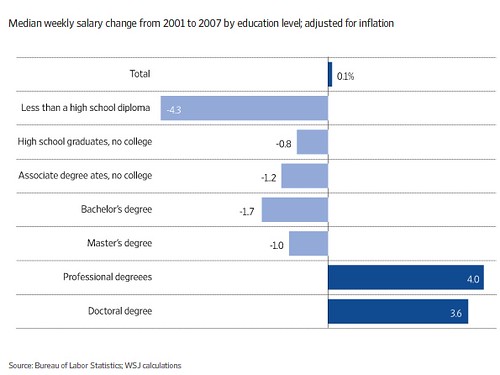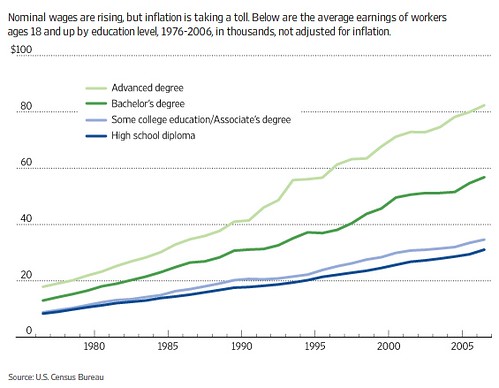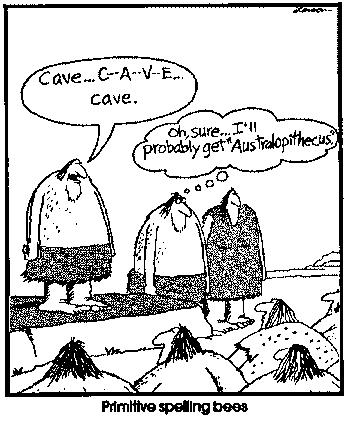A new study draws attention to the social consequences of a decades-old trend in parenting: having kids start school a year later. For years, research showing the benefits of being an older first-grader, as well as the experience of countries like Finland where schooling doesn’t start until age seven, has encouraged parents and teachers to “redshirt” kids. In 1968, 96% of six-year-olds were enrolled in first grade or above. By 2005, that number had fallen to 84%.
[snip]
Harvard’s David Deming and Susan Dynarski, in an NBER working paper published this month, write that “increasing age at school entry intensifies inequality in human capital and social welfare.” Kids who start school a year late have one year less schooling before they reach the age at which they’re allowed to drop out, decreasing their average educational attainment and widening the gap in learning between rich and poor.
[snip]
Deming and Dynarski note that, in the last 40 years, almost every state has raised the age at which children can start school. “This change is remarkable,” they write, “given the strong evidence that, in the United States, starting school later decreases educational attainment.”
The Graying of Kindergarten'
a couple of interesting comments:
I agree that the extra year is especially helpful for boys. My son has the skills but not the social maturity to sit through all day kindergarten. I also feel that there should be some boundaries. My daughter had an eight year old in her first grade class. Bullying and sports are both a problem in that case.
Comment by Andrew - July 18, 2008 at 2:32 pm
I have a January birthday and was a good reader when I entered Kindergarten. My first grade teacher had me tested and based on my social maturity and age, I was moved to second grade after two months or so.
My mother years later said that some neighbors shunned our family because I got special treatment and their kids did not. Mind you, this was in 1959 when parents were less competitive about their offspring.
Later in HS, I felt socially immature compared to my peers and the fact that my puberty was delayed did not help either. That senior year was tough. But in college, it did not matter.
The intangibles of being one year off probably cannot be reliably assessed for 10 years.
Comment by Skipped first grade - July 18, 2008 at 2:49 pm
In my neighborhood there are two reasons parents hold back their children: 1) To give their child an academic advantage over their younger classmates so they have the honor of being in the gifted track; and 2) To give their child an athletic advantage in sheer size and speed over younger classmates.
To me it was very strange seeing several of my child’s classmates with adult teeth when they entered kindergarten.
Comment by John - July 18, 2008 at 2:55 pm
I have three sons, the third of which started a year late. The third is in his second year of high school and has been this highest achiever of the three. Had we entered him into school a year earlier, his relative immaturity and diminutive size would have likely caused socialization and confidence problems that would have resulted in a much different outcome.
Comment by Paul - July 18, 2008 at 2:59 pm
I love this: “increasing age at school entry intensifies inequality in human capital and social welfare.” Isn’t that the whole point of holding your kid back? It’s to give him a leg up and widen the gap between him/her and other students because good jobs are a scarce resource. Maybe on average kids who start later do worse, but not in the WASPY demographic of the WSJ. Face it people, we are trying to widen the gap between our own children and everyone else’s so they aren’t in a position to lose their job to a 3rd world worker. Ideal? No. Reality? Yep - welcome to America.
Comment by So Smart You're Stupid - July 18, 2008 at 3:33 pm
[this commenter must have read The Race Between Education and Technology...]
Have none of you really considered why many parents are starting their kids later…for sports. I know lots of kids who were held back by a year so by the time they reached high school they were a year older and more mature and developed than the competition, thus increasing the chances of being recruited for college. It’s sad but true that so many parents actuall do this.
Comment by Anonymous - July 18, 2008 at 4:04 pm
Parents who redshirt their children believe that outcomes in life are determined by relative achievement. For example, they feel that their children will be better served by becoming Little League All-Stars while competing against younger teammates. This is clearly sub-optimal for society, but it does strike me as rational. The Harvard researchers seem to have missed the fact that many parents would prefer their daughter to graduate from Harvard at age 23 than from State U at age 22.
Comment by John Sterling - July 18, 2008 at 4:16 pm
The problem here is how the data is being interpreted by the Harvard folks. When the dropouts are lumped in, on aggregate the picture looks bleak. The more interesting point, and the one that everyone seems to be alluding to in their comments, is what happens to the educational attainment of those children who do stay in school for the full 12 years; is it better or worse than a control group?
Comment by Professional Researcher - July 18, 2008 at 5:27 pm
After reading/scanning most of your comments I am baffled how parents have abdicated their responsibility in raising their children. Wake-up call: it is not the state’s responsibility to educate your children or set age limits, it is yours. Just because the state has taken over this job doesn’t mean it should be that way. And for those ready to ask me about the “socializing” of my children, here’s my answer: My children are socialized with a diverse group of people: older people, children from other countries, their parents and each other. They are certainly not the peer dependent children that the state/private school gives you back when you send your child there.
Comment by Homeschooling Dad - July 18, 2008 at 6:23 pm
I was an August birthday who started “on time.” I did fine academically, but my social and physical development lagged behind my academic development.
The problem isn’t whether a kid is or is not ready to start by a certain date, the problem is whether a kid is or is not more mature than their peers. The youngest kid in the class will always be developmentally behind the oldest, whether the youngest kid was born in December, August, or May.
Comment by Jim - July 19, 2008 at 8:36 am
just throwing it out there, but I repeated kindergarten then went on to graduate number 1 in my class from high school and magna cum laude from college. From my recent experience, the younger kids in my grade during high school were more imature and did not do as well on average. Most of the AP classes were older kids
Comment by another opinion - July 19, 2008 at 10:04 am
There are numerous comments from people who were the youngest in their class and did great. I've pulled the negative comments because they describe what we've experienced.
I had a funny experience this spring. I've long had the perception that the dominant boys in C's class are the older kids. But I hadn't thought about the ramifications of this apparent fact.
In C's class there are a couple of boys who routinely blow him & most of his friends out of the water on grades, etc. These kids also seem to be very well liked by the teachers.
This was always a bit of a mystery to me. Obviously these kids were very bright, but I didn't see the big difference between them and all of the boys in C's circle, who seem a tad underappreciated by my lights.
Then last May C and I were talking about something or other, and C mentioned in passing that "X & Y are a year older. That's why they're so smart."
He said this matter-of-factly, as if this were simply taken for granted by the kids at school.
I'm sure he's right.
My conclusion is that if your son is going into a highly competitive public school setting, a Richard Elmore-type "high-performing" school* in which parents are hiring tutors, there's nothing to be gained and plenty to be lost by allowing him to be the youngest in the class.
I suspect things are different in a DI or Catholic school, though I don't know.
Basically, any kind of sink-or-swim educational environment will handicap kids by age. I'm pretty sure.
* Richard Elmore posts t/k
relative age effect
high school leadership, wages, and relative age
redshirting kids
redshirting & tournament settings







